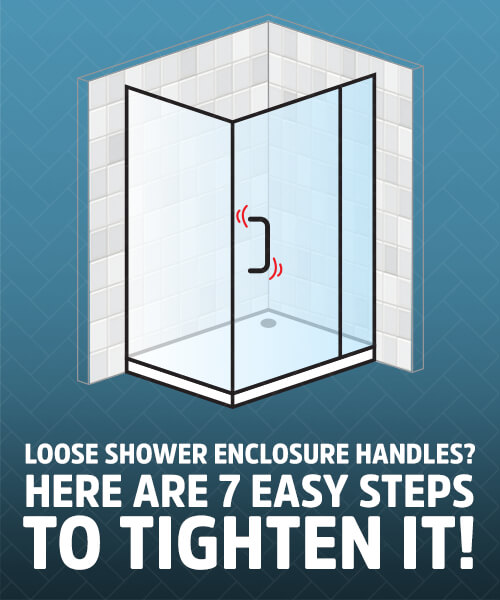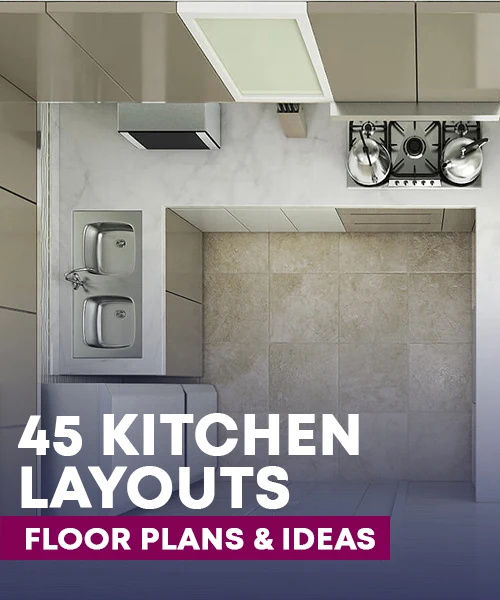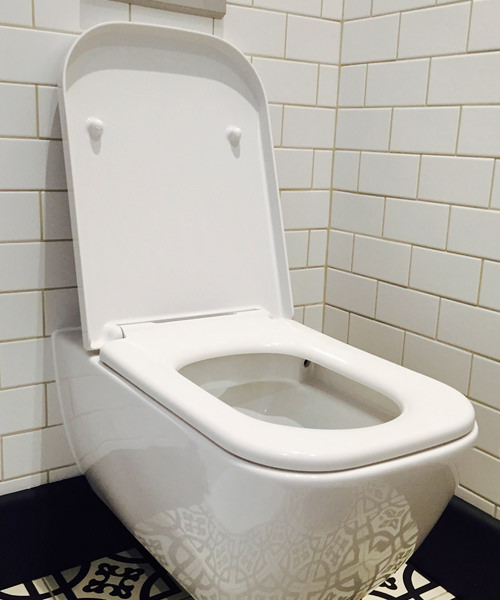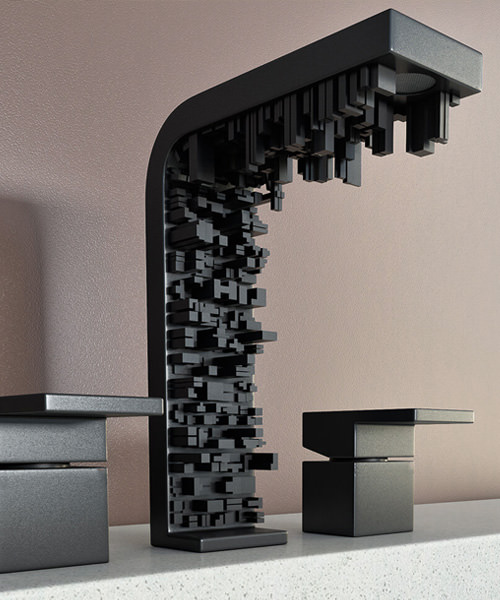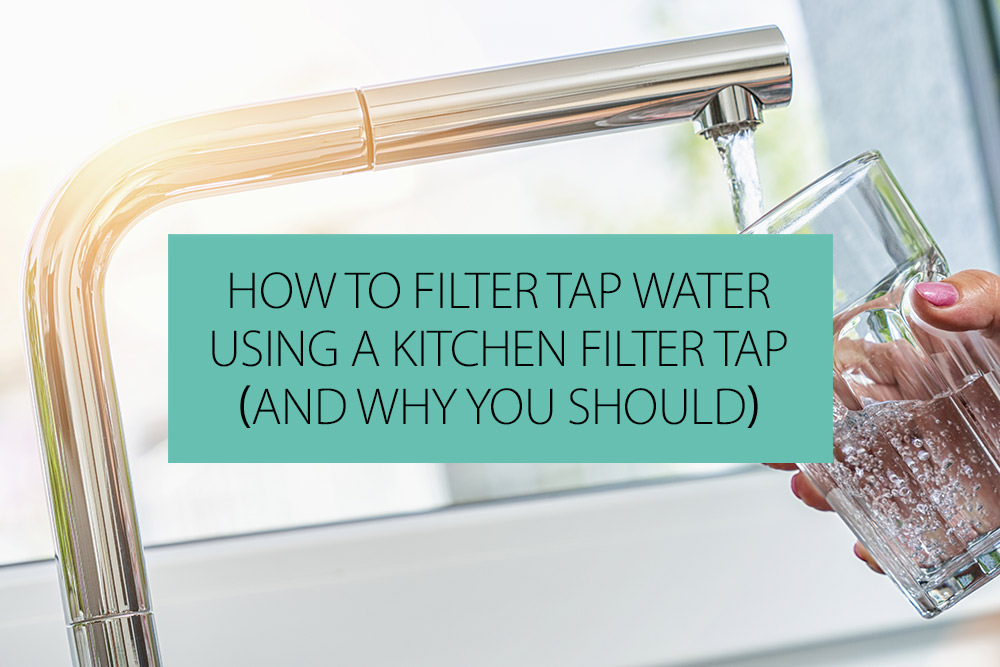
Cleaner, healthier and better for the environment, a tap water filter is a great addition to your kitchen. But how do you know if you need a tap water filter? We’ll answer that question and also explain how water filters work and what they filter out of your water.
We’ll take you through how kitchen tap filters work, the advantages of fitting one and how to install one, which can be as easy as fitting a filter onto the end of your tap.
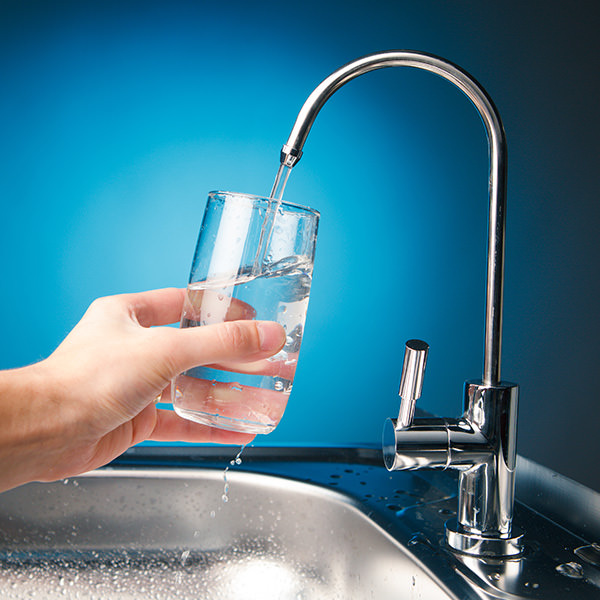
What Is A Water Filter?
A water filter cleans your tap water, removing impurities, including chemicals. A good water filter will make your water cleaner and also make it taste and smell better.
There are four main ways to filter water for your kitchen.
- The quickest option is to use a filter jug that you refill and store in the fridge. It’s ultra-convenient but only works with small volumes and needs constant refilling.
- On-tap/faucet filters are the easiest and cheapest way to filter your water. They’re practical and efficient, but they will reduce the water pressure and can be awkward to fit and keep sealed.
- Under-sink filters add extra levels of filtration, making them more effective. And as they’re installed under your sink, you won’t have any extra gadgets or on-tap filters cluttering your kitchen.
- You can have the tap filter water installed as a separate tap alongside your existing unit. Or you can upgrade to a kitchen mixer tap containing hot water, filtered water and traditional tap water.
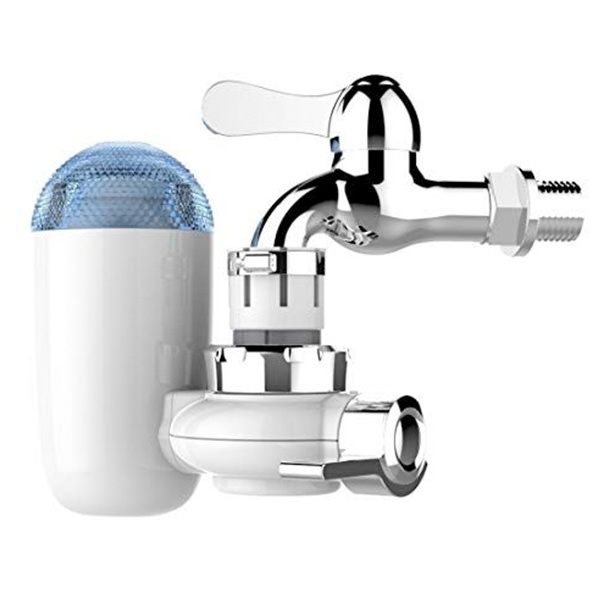
Mixer Tap Design
The best, long-lasting approach to water filtering is using an under-sink filter with a mixer tap. There is a wide range of design options and materials to choose from to suit your budget and kitchen design, including the long-spout, artisan look or a classic chrome finish. Or you could go one step further and install a four-way mixer, including a boiling water tap. For more information on boiling water taps, check out our recent feature.
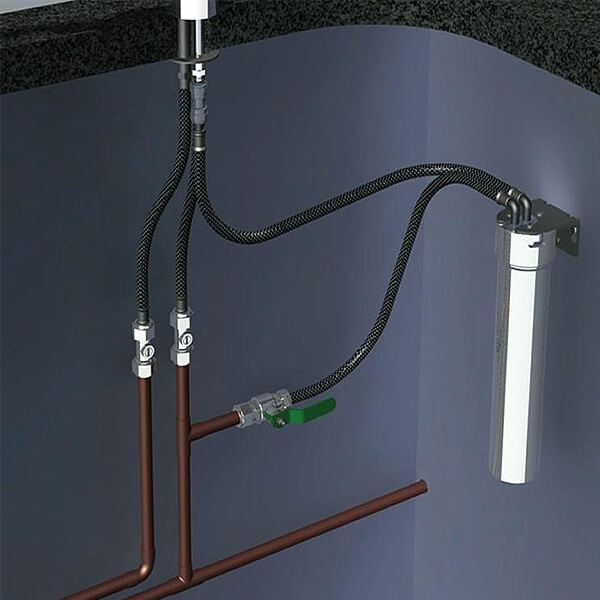
How Do Water Filters Work?
Water filters use chemical reactions, gravity and physics to remove impurities and unwanted chemicals from your water. There are several different techniques commonly used to filter water.
The most common way to filter tap water is using activated charcoal, also known as carbon filtering or prefiltering. The carbon in the charcoal acts as a filter, letting the clean water pass through while chemicals, including pesticides, chlorine and some microplastics stick to the carbon. Carbon filters work best with low-pressure and cold water, making them perfect for home use. Typically, a carbon filter will last around two months or around 2,000 litres with refills readily available. Some taps will also have an in-built alarm that tells you when you need to replace the filter unit.
The other primary way to filter your water at home is via reverse osmosis. Your tap water is filtered through a membrane with small pores before undergoing several filter processes. It’s one of the most thorough ways to filter water, but it’s also expensive and inefficient: Only around 70% of your tap water is cleaned, resulting in higher water consumption.
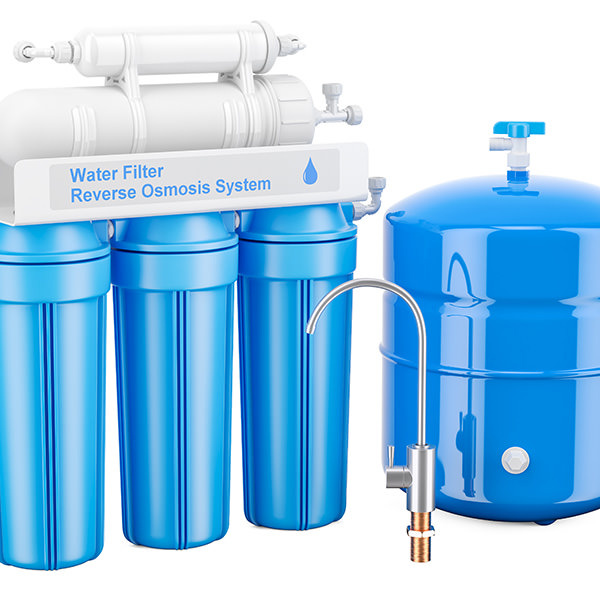
There are other ways to filter water, including ion exchange, mechanical and using ozone. But due to the cost and size of the equipment, these methods are normally not a preferred choice within homes. Ion exchange and ozone filters are generally sued to soften hard water and don’t have a role to play in filtering out chemicals or improving the taste of water.
Does Your Water Need Filtering?
UK law states that tap water has to be suitable for drinking, cooking and washing and is regularly tested to meet the highest standards. Consequently, Great Britain has some of the cleanest tap water in the world. Around one-third of tap in England comes from underground sources, including aquifers, with the rest drawn from reservoirs, lakes and rivers. Scotland and Northern Ireland differ slightly, with the majority of their tap water drawn from lakes and rivers.
But even though our tap water goes through several chemical and physical processes before it reaches our houses, it can still be refined and cleaned even further to remove excess chemicals and hard metals and improve the taste and smell.
What Does A Water Filter Remove?
Tap water filters can remove up to 80 different chemicals as well as silt and sediment. UK tap water is highly regulated and safe, but chemical and pollution levels can rise and fall over time and be susceptible to accidents. A water filter will give you peace of mind that your water is clean and healthy at all times, removing a wide range of substances.
One of the most common chemicals a water filter will remove is chlorine, which is added to UK water as a disinfectant. While the low limits are well within World Health Organization guidelines, many can still taste the chlorine in the water. A water filter will remove much of the chlorine from the water, providing healthier, better-tasting water.
Water filters will also remove excess fluoride. Fluoride is a naturally occurring mineral, which is added to some drinking water across the country as it helps prevent tooth decay. In total, around 27 councils and 6 million people receive fluoridated water (check this map to see how much fluoride is in your water). Too much fluoride can result in fluorosis in children, causing discoloured or pitted tooth enamel.
Water filters will also remove lead and limescale from your water. Lead pipes have been banned in the UK for over 25 years, but houses built before the 1970s can often have lead pipes or lead solder in the joints. This could lead to lead contamination, which can cause a wide range of problems, including headaches, vomiting, learning difficulties, fatigue and more. A water filter will remove around 95% of lead from your water, bringing it within safe level guidelines.
Hard Water
Limescale, commonly known as hard water, is found in around 60% of the UK and has high levels of calcium and magnesium. Hard water isn’t a health hazard, but it can make the water taste bitter and leave a hard, white limescale residue in pipes and kettles. It can also make shampoo and washing detergents less effective and can cause dry hair and skin. Using a water filter( Ion exchange or ozone filter ) installed at the source of your home water supply will remove limescale, so your water tastes better and water-using appliances like washing machines, dishwashers and kettles are more effective.
A shower filter will remove the limescale from your shower head. Not only will it ensure your shower unit and head lasts longer with less limescale damage, but it will also provide softer water, resulting in softer skin and hair.
As with tap filters, you need to replace the filter every few months to maintain the filter quality.
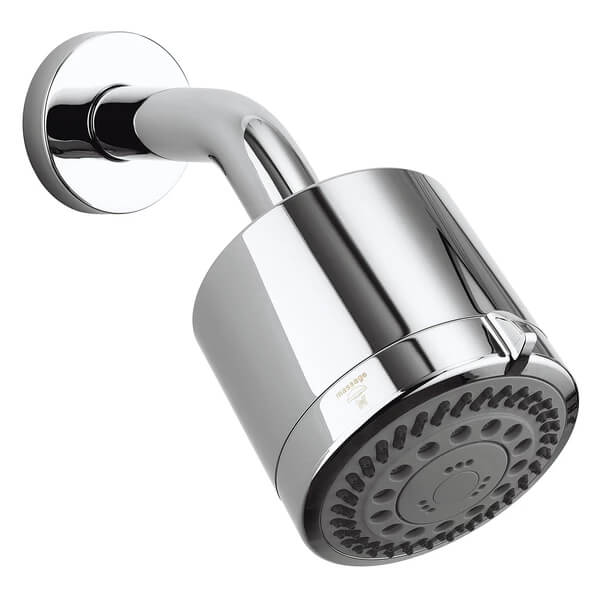
Other Benefits
As well as providing clean drinking and cooking water, there are other benefits to using a water filter.
- Water filtering is cheaper than buying bottled mineral water.
- Using a water filter also reduces your carbon/plastic footprint, as you’re buying less bottled water.
- Tea and coffee makers will also appreciate a water filter, as it will help make a better-tasting brew.
Conclusion
Using a tap water filter isn’t strictly necessary in the UK, as our water is so highly regulated.
But a simple tap water filter will give you an extra layer of protection, providing clean, healthier and better-tasting water at a relatively small cost.

